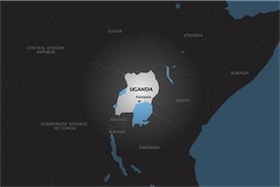Rogue Cops in Uganda

I think a big lacuna in rightwing thought about government capacity and government competence is the fact that the least controversial public service agencies are also the most dangerous. Consider this Human Rights Watch report about the police in Uganda:
The Ugandan police Rapid Response Unit frequently operates outside the law, carrying out torture, extortion, and in some cases, extrajudicial killings, Human Rights Watch said in a report released today. Ugandan authorities should urgently open an independent investigation into the unit's conduct and activities and hold accountable anyone responsible for human rights violations, Human Rights Watch said.
The 59-page report, "Violence Instead of Vigilance: Torture and Illegal Detention by Uganda's Rapid Response Unit," documents the unit's illegal methods of investigation and serious violations of the rights of the people it arrests and detains. The unit has a history of violent and unlawful operations since it was formed by President Yoweri Museveni in 2002 as Operation Wembley, an ad-hoc security entity commanded by an active member of the Ugandan military. Later, the unit became the Violent Crime Crack Unit and was formally taken under police command. In 2007, it was renamed the Rapid Response Unit.
"Changing the unit's name, leadership, and command makes no difference to the people this unit tortures, detains, or in some cases kills," said Daniel Bekele, Africa director at Human Rights Watch. "The authorities and the donors who fund the police need to get serious about holding abusive officers of this unit accountable."
You can't just look at this, wave around an old essay on public choice economics, and say "this goes to show why countries shouldn't have police" or "big government policing just can't work." And yet this kind of problem with corrupt and violent security services is incredibly common in the developing world (and not entirely unheard of in the USA). One of the big things that all the most successful countries have in common is relatively well-functioning public institutions grounded in some kind of publicly endorsed ethic. The question of how you create and sustain this kind of situation is much more important than whether the government is "big" or "small."


Matthew Yglesias's Blog
- Matthew Yglesias's profile
- 72 followers



